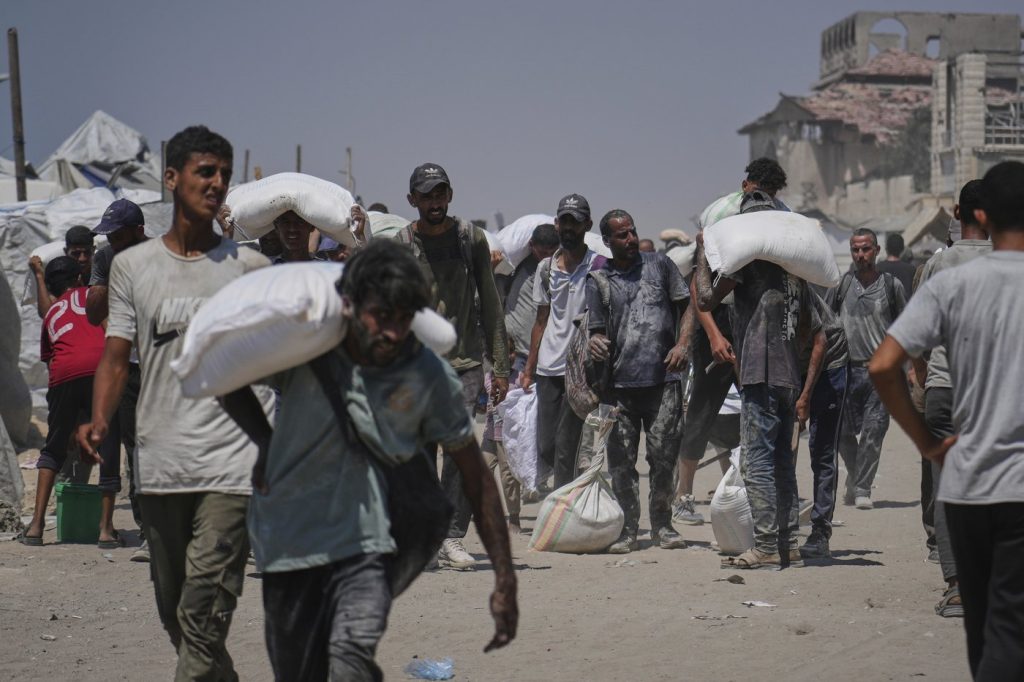DEIR AL-BALAH, Gaza Strip - Israeli airstrikes have reportedly killed at least 34 Palestinians across various locations in Gaza, according to local health officials. This surge in violence occurred shortly after Israel announced a temporary easing of aid restrictions due to an escalating humanitarian crisis in the region.
On Sunday, Israel declared a pause in military operations in Gaza City, Deir al-Balah, and Muwasi for 10 hours each day, beginning at 10 a.m. to facilitate aid deliveries. The Israeli government highlighted that these measures were put in place to enhance the flow of humanitarian aid for Palestinians facing increasing hunger. Secure routes for the transport of aid were also designated. However, Israel clarified that military operations would continue concurrently with these new humanitarian initiatives.
Despite the announced support, Israeli military strikes persisted outside the designated pause hours. Aid organizations welcomed the new measures, which include the provision for airdrops into Gaza, but many expressed that these efforts were insufficient to adequately address the worsening food crisis threatening the Palestinian population.
The plight of Gaza's children has triggered worldwide outrage, with images depicting severely malnourished youngsters circulating globally. Notably, U.S. President Donald Trump labeled these images as “terrible,” reflecting international concern, including from Israel's close allies. Throughout the ongoing war, Israel has imposed varying degrees of restrictions on aid deliveries. In March, Israel halted all supplies, including food, medicine, and fuel, aiming to exert pressure on Hamas for the release of hostages.
Although restrictions were partially lifted in May, a complicated U.S.-backed aid delivery system faced significant challenges due to violence and chaos. Traditional aid providers have experienced similar difficulties, leading to a breakdown in law and order surrounding assistance distributions. Currently, a vast majority of Gaza’s population relies on aid to meet their basic needs, with accessing food turning perilous for many.
The Awda hospital reported receiving the bodies of seven Palestinians killed by Israeli fire near an aid distribution site operated by the Gaza Humanitarian Foundation, which receives support from the U.S. and Israel. Moreover, a pregnant woman was killed in an airstrike in the Muwasi area, along with eleven others, while her fetus survived following a complex surgical procedure, as noted by the Palestinian Red Crescent.
In another strike, a two-story house in the western Japanese neighborhood of Khan Younis was hit, resulting in at least 11 casualties, including many women and children, according to Nasser Hospital, which treated the injured. The Israeli military and the Gaza Humanitarian Foundation did not provide immediate comments regarding these airstrikes.
The conflict began on October 7, 2023, when Hamas carried out an unprecedented attack, resulting in 1,200 casualties and the abduction of 251 individuals, with around 50 hostages believed to still be held, many of whom Israel suspects are deceased. Since the onset of Israel's retaliatory offensive, Gaza's Health Ministry reports that over 59,800 Palestinians have died, but it notes that the casualty count does not differentiate between combatants and civilians. Notably, the ministry asserts that more than half of those deceased are women and children. This health ministry operates under Hamas governance, and various international organizations view it as a reliable source for casualty data.











